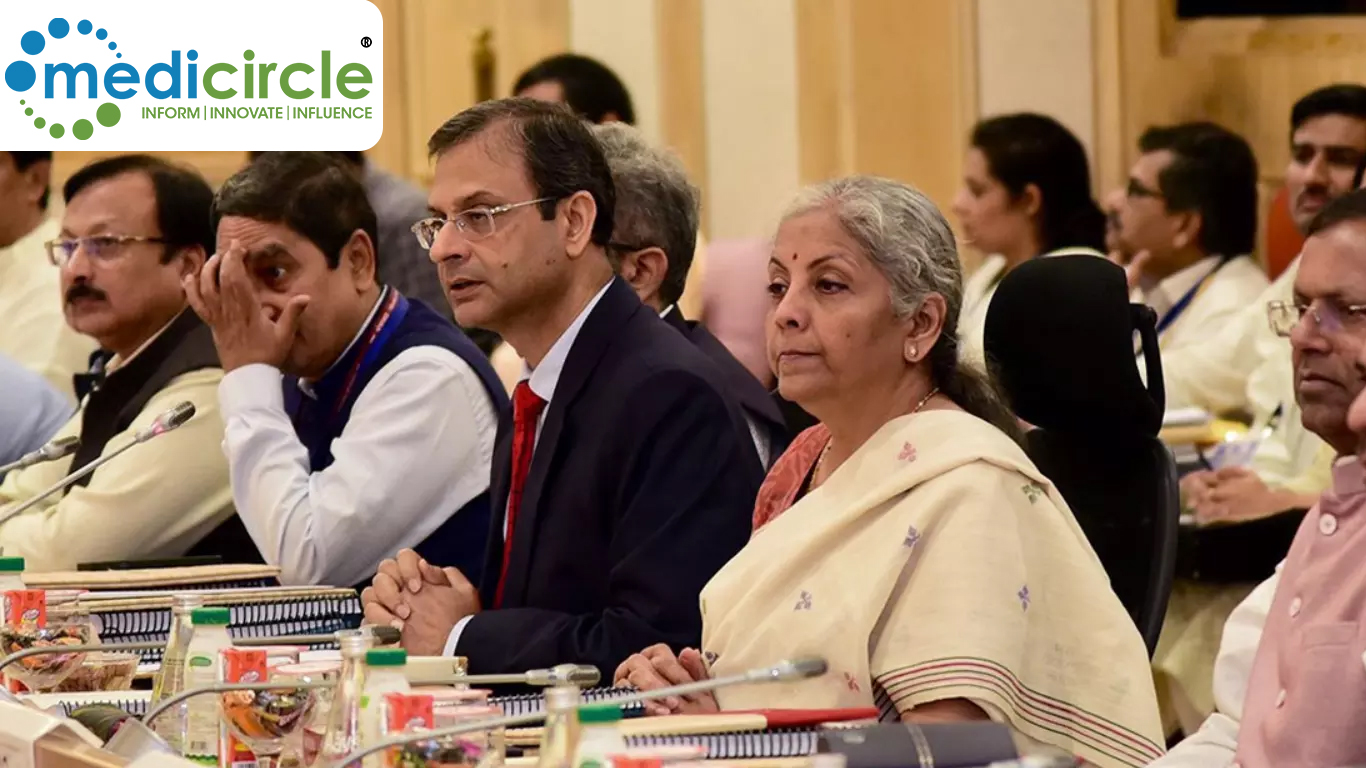The Goods and Services Tax (GST) Council, led by Finance Minister Nirmala Sitharaman, has recently made a significant decision that promises financial relief for patients suffering from cancer. The council has reduced the GST on three crucial cancer medications from 12% to 5%, marking a pivotal step towards making life-saving treatments more affordable. This move targets immune and targeted therapies like trastuzumab deruxtecan, osimertinib, and durvalumab—drugs primarily sold by AstraZeneca, a global pharmaceutical and biotechnology giant.
Let’s explore the impact of this decision, how these drugs function, and the broader implications for cancer patients in India. With cancer being one of the leading causes of death worldwide, any reduction in treatment costs can significantly affect the quality of life for patients and their families.
These cancer medications are not your average chemotherapy drugs; they represent the cutting edge of modern oncology, offering more precise and effective treatments. Here’s a closer look at each of these drugs and how they work.
1. Trastuzumab Deruxtecan
Trastuzumab deruxtecan is an antibody-drug conjugate designed to treat HER2-positive breast cancer, particularly in cases where the cancer has metastasized, or spread to other parts of the body. HER2-positive breast cancer is a subtype of breast cancer that tends to grow more aggressively, making this drug vital for patients fighting this challenging condition. The drug is also being studied for its potential use in treating other forms of cancer, such as gastric cancer.
This therapy works by combining two powerful components: an antibody that specifically targets HER2, a protein found on the surface of some cancer cells, and a chemotherapy agent that attacks the cancer cells once the antibody has found its target. This targeted approach allows for more efficient cancer cell destruction with potentially fewer side effects than traditional chemotherapy.
2. Osimertinib
Osimertinib is a ground-breaking targeted therapy used to treat non-small cell lung cancer (NSCLC), particularly in patients whose cancer has specific mutations in the epidermal growth factor receptor (EGFR) gene. These mutations make cancer cells grow uncontrollably, and osimertinib works by blocking the activity of the EGFR protein, slowing the growth of the cancer.
What makes osimertinib particularly important is its effectiveness in cases where cancer has developed resistance to earlier treatments. Many patients with NSCLC eventually stop responding to first-generation EGFR inhibitors, but osimertinib has shown promise in overcoming this resistance, offering hope for extended survival.
3. Durvalumab
Durvalumab is an immunotherapy drug that revolutionizes how the immune system fights cancer. It works by blocking a protein called PD-L1, which some cancer cells use to evade detection by the immune system. By inhibiting this protein, durvalumab helps the immune system recognize and attack cancer cells more effectively.
This drug is used to treat non-small cell lung cancer as well as urothelial carcinoma, a type of bladder cancer. Immunotherapy, such as durvalumab, is transforming cancer treatment by helping the body’s own defenses tackle the disease.
The GST Council’s decision to slash the tax on these essential cancer drugs from 12% to 5% is a substantial move, aimed at reducing the financial burden on patients. However, the exact impact of this tax cut on the actual retail price of these medications depends largely on how the savings are passed on by manufacturers and distributors.
If the full GST reduction is implemented, patients could see a price drop of approximately 7% for these life-saving drugs. This may seem like a small percentage, but given the high costs of cancer treatments, even a modest reduction can translate to significant savings for patients and their families.
For example, consider a cancer drug that costs ₹10 lakhs. A 7% reduction would mean savings of ₹70,000—an amount that could go a long way in easing the financial strain on a patient undergoing prolonged treatment. Cancer treatments often require multiple doses or long-term therapy, making even minor price adjustments highly impactful.
However, it’s important to note that the overall reduction in prices may be slightly less than expected due to the complex pricing structures within the pharmaceutical distribution chain. Nevertheless, any reduction is welcome news for patients who often face exorbitant medical bills.
While this GST reduction will undoubtedly provide financial relief to cancer patients, it is also a signal that the government is taking steps to address the high cost of healthcare in India. Cancer treatments are notoriously expensive, and many patients struggle to afford the latest therapies, which are often their best hope for survival.
This move could also set a precedent for future reductions in taxes on other high-cost medications, particularly those used in the treatment of chronic and life-threatening conditions like diabetes, cardiovascular diseases, and autoimmune disorders. With India facing a growing burden of non-communicable diseases, lowering the cost of essential medicines could improve access to treatment and reduce healthcare disparities across the country.
For cancer patients and their families, this GST reduction represents more than just a monetary saving—it symbolizes hope. Battling cancer is not only physically and emotionally exhausting but also financially draining. Many patients deplete their life savings, borrow money, or sell assets to pay for treatment. The reduction in GST may help ease some of this burden, allowing patients to focus on their recovery rather than their mounting medical bills.
The financial stress associated with cancer treatment often leads patients to delay or discontinue treatment, which can have devastating consequences for their health outcomes. By making these life-saving drugs more affordable, the GST reduction could potentially improve survival rates and overall quality of life for cancer patients in India.
While the GST reduction is a step in the right direction, there is still much work to be done to ensure that all cancer patients in India have access to affordable, high-quality care. Public health initiatives aimed at early detection, cancer prevention, and expanding access to treatment are crucial for reducing the cancer burden in the country.
Additionally, investment in healthcare infrastructure, research, and development of new therapies is essential for advancing cancer care. India has a growing pharmaceutical industry, and with the right support, it could become a leader in the development of innovative cancer treatments that are both effective and affordable.
The decision to reduce GST on three critical cancer drugs is a positive development for India’s healthcare system. By lowering the cost of trastuzumab deruxtecan, osimertinib, and durvalumab, the government has taken an important step towards making cutting-edge cancer treatments more accessible to those who need them most.
While the actual reduction in drug prices will depend on how manufacturers and distributors implement the GST cut, the potential savings could bring much-needed relief to cancer patients and their families. This move also highlights the need for continued efforts to address the high cost of healthcare in India, particularly for patients battling life-threatening diseases like cancer.
As we look to the future, it is essential that the government, healthcare providers, and pharmaceutical companies work together to ensure that all patients, regardless of their financial situation, have access to the treatments they need. This GST reduction is just one part of the solution, but it is a step towards a more equitable and affordable healthcare system for all.

 While the actual reduction in drug prices will depend on how manufacturers and distributors implement the GST cut, the potential savings could bring much-needed relief to cancer patients and their families.
While the actual reduction in drug prices will depend on how manufacturers and distributors implement the GST cut, the potential savings could bring much-needed relief to cancer patients and their families.










.jpeg)


.jpeg)
.jpeg)
.jpeg)
_(1).jpeg)

_(1)_(1)_(1).jpeg)
.jpeg)
.jpeg)
.jpeg)








.jpeg)
.jpeg)